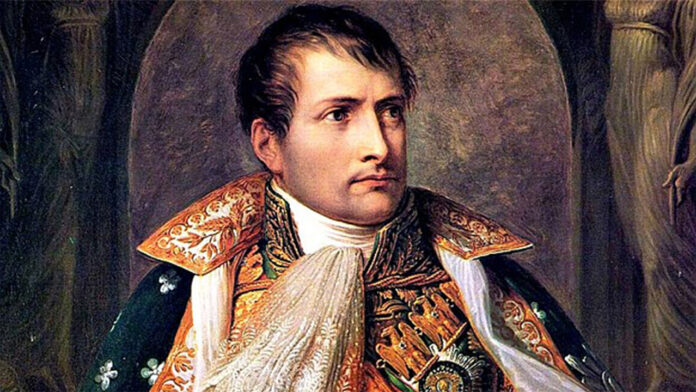Napoleon Bonaparte, the renowned French Emperor and military tactician, made history with his vast reforms, ambitious conquests, and enduring influence. This piece delves into the lives and times of Napoleon, presenting fascinating details about his ascent to prominence, military operations, legislative initiatives, and long-lasting influence on the development of European history.
Childhood and Ascent to Power
Origins in Corsica: The son of a small nobleman, Napoleon Bonaparte was born in 1769 on the island of Corsica. Napoleon came from modest roots, but he showed remarkable brilliance and drive at an early age, winning a scholarship to France’s famous military institution, École Militaire.
Revolutionary Leader: Napoleon made a name for himself as a gifted and aspirational commander by moving up the French military ranks following the French Revolution. His military prowess during the French Revolutionary Wars propelled him to fame and won the respect of both the general public and political elites.
Campaigns and Military Conquests
Campaigns in Italy: Napoleon’s initial military expeditions in Italy demonstrated his strategic acumen and inventive methods. His military prowess and the extent of French power in Europe were cemented by his triumphs over Austrian and Italian forces.
Egyptian Expedition: To obstruct British trade links to India and establish French dominance in the area, Napoleon undertook a risky expedition to Egypt in 1798. Even though the campaign was eventually unsuccessful, it helped Napoleon become more well-known as a world leader and brought archaeological discoveries about the grandeur of Egyptian civilization to Europe.
French Emperor
Napoleon’s coronation as Emperor: The Napoleonic Empire was founded when Napoleon declared himself Emperor of France in 1804, marking the pinnacle of his ascent to power. His aspiration to establish a new European order led by France was symbolized by his coronation ceremony held at Paris’s Notre-Dame Cathedral.
Napoleonic Code: During his reign as Emperor, Napoleon carried out a number of significant changes that became known as the Napoleonic Code. These changes eliminated feudal rights, codified French law, and encouraged equality before the law. Even now, the code is still a fundamental piece of legislation in many nations.
Napoleonic Conflicts and Occupations
Continental Expansion: The political landscape of Europe was altered and the distribution of power on the continent was rearranged as a result of Napoleon’s military conquests, also referred to as the Napoleonic Wars. Napoleon’s soldiers seized enormous swathes of territory, from the streets of Moscow to the battlegrounds of Austerlitz, establishing French rule over most of Europe.
Defeat and Exile: Napoleon’s ambitions proved to be his undoing, even in spite of his military brilliance. His hold on power was weakened by the catastrophic 1812 invasion of Russia and the coalition wars that followed against France. Napoleon renounced his right to the kingdom in 1814 and was banished to the island of Elba. He only made a brief return to the country in 1815 for the Hundred Days war, which ended in defeat at the Battle of Waterloo.
History and Significance
Military Strategy: Napoleon’s military inventions, such as the corps organization, quick movement warfare, and the employment of mass conscription, transformed military tactics and strategy. His campaigns shaped the direction of modern warfare and affected military leaders and philosophers for many decades to come.
Reforms and Institutions: Napoleon’s legacy extends beyond his military victories to include important advancements in the fields of law, education, and government. His reforms had a long-lasting effect on French institutions and society by modernizing the country’s legal system, centralizing government, and advancing secular education.
Sustaining Interest
Cultural Legacy: Historians, academics, and fans all across the world are still fascinated by Napoleon’s life and work. His multifaceted character, shrewd strategic mind, and dramatic ascent and descent have served as inspiration for innumerable books, movies, and artistic creations, solidifying his place as a legendary figure in popular culture.
Historical Debate: Historians and academics continue to disagree about Napoleon’s legacy. There are those who condemn his dictatorial tendencies and imperial ambitions, while others see him as a visionary leader who disseminated the ideas of the French Revolution and modernized Europe.
In conclusion, Paying Tribute to Napoleon’s Legacy
In summary, the life and contributions of Napoleon Bonaparte constitute an enthralling chapter in the history of Europe. From his modest upbringing on the island of Corsica to his quick ascent to the position of French Emperor.

